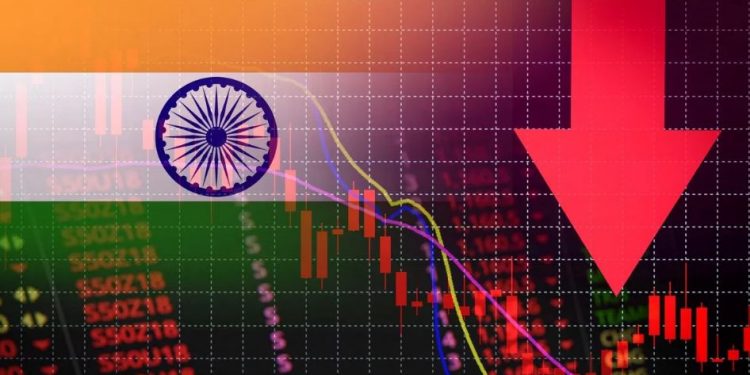New Delhi: Moody’s Investor Service Friday enhanced the contraction rate of India’s FY21 GDP to (-) 11.5 per cent from an earlier estimate of (-) 4 per cent. The revision comes days after India reported a massive 23.9 per cent contraction in the first quarter GDP of the current fiscal.
Consequently, Moody’s revised the forecast for the next financial year 2021-22. It now estimates a growth of 10.6 per cent from a rise of 8.7 per cent, which was predicted earlier.
“The country’s policymaking institutions have struggled to mitigate and contain these risks, which have been exacerbated by the coronavirus pandemic. Mutually reinforcing risks from deeper stresses in the economy and financial system could lead to a more severe and prolonged erosion in fiscal strength, exerting further pressure on the credit profile,” a Moody’s statement said.
Moody’s had earlier downgraded India’s sovereign rating to Baa3 with a negative outlook.
The statement Friday said that the negative outlook reflects mutually reinforcing downside risks from potentially deeper stresses in the economy and the financial system that could lead to a more severe and prolonged erosion in fiscal strength than currently projected.
Persistent growth challenges, including weak infrastructure, rigidities in labour, land and product markets and rising financial sector risks continue to constrain the economy’s potential, it said, adding that these structural weaknesses may impair the economy’s recovery from domestic or external shocks to a greater extent than presently assumed.
Moreover, the nature of stress among non-bank financial institutions (NBFIs) and banks is still being revealed and may prove deeper and broader than we have assessed so far.
The materialisation of economic and financial system risks would be mutually reinforcing, and a deeper and more prolonged credit crunch would constrain GDP growth further, which would increase pressure on financial institutions’ balance sheets.
“Should downside risks to growth or the financial system materialise, negative consequences for India’s fiscal strength would follow. The longer the period of relatively subdued growth, the more likely that India’s debt burden will continue to rise,” it said.
The materialisation of further contingent liabilities for the government, in the event of renewed financial support to financial institutions, would only add to the debt burden.
As per the statement, a rating upgrade is unlikely in the near future. However, it noted that Moody’s would change the outlook on India’s rating to stable if economic developments and policy actions were to raise confidence that real and nominal growth will rise to sustainably higher rates than currently projected.
Measures which enhance financial stability by strengthening the supervision, regulation and capitalisation of the financial sector would support such a move. Commensurate action to halt and reverse the rise in the debt trajectory, even slowly, would also promote a stable outlook, it said.
“Further evidence that self-reinforcing economic and financial risks are rising would put downward pressure on the rating,” it said.
India’s Baa3 government bond rating reflects “a2” economic strength, “ba1” institutions and governance strength, “b2” fiscal strength, and “ba” susceptibility to event risk, said the statement.







































